Offbeat Cleaning Tricks: Are you tired of the same old cleaning routine? Do stubborn stains and grime laugh in the face of your conventional cleaning efforts? I know I was! That’s why I’ve delved deep into the world of unconventional cleaning, uncovering some truly surprising and effective methods that will revolutionize your home care.
For centuries, resourceful homemakers have passed down quirky cleaning secrets, often born out of necessity and a desire to make the most of available resources. Think about it – before the age of mass-produced cleaning products, people relied on natural ingredients and clever techniques to keep their homes sparkling. These aren’t just random ideas; they’re time-tested solutions that have stood the test of time!
Let’s face it, cleaning can be a chore, but it doesn’t have to be a drag. These offbeat cleaning tricks aren’t just about getting the job done; they’re about finding fun and innovative ways to tackle those pesky cleaning challenges. Imagine banishing water stains with a walnut or using stale bread to absorb grease! These are the kinds of game-changing hacks that will not only save you time and money but also add a touch of whimsy to your cleaning routine. So, ditch the harsh chemicals and embrace the power of the unexpected – your home (and your sanity) will thank you for it!
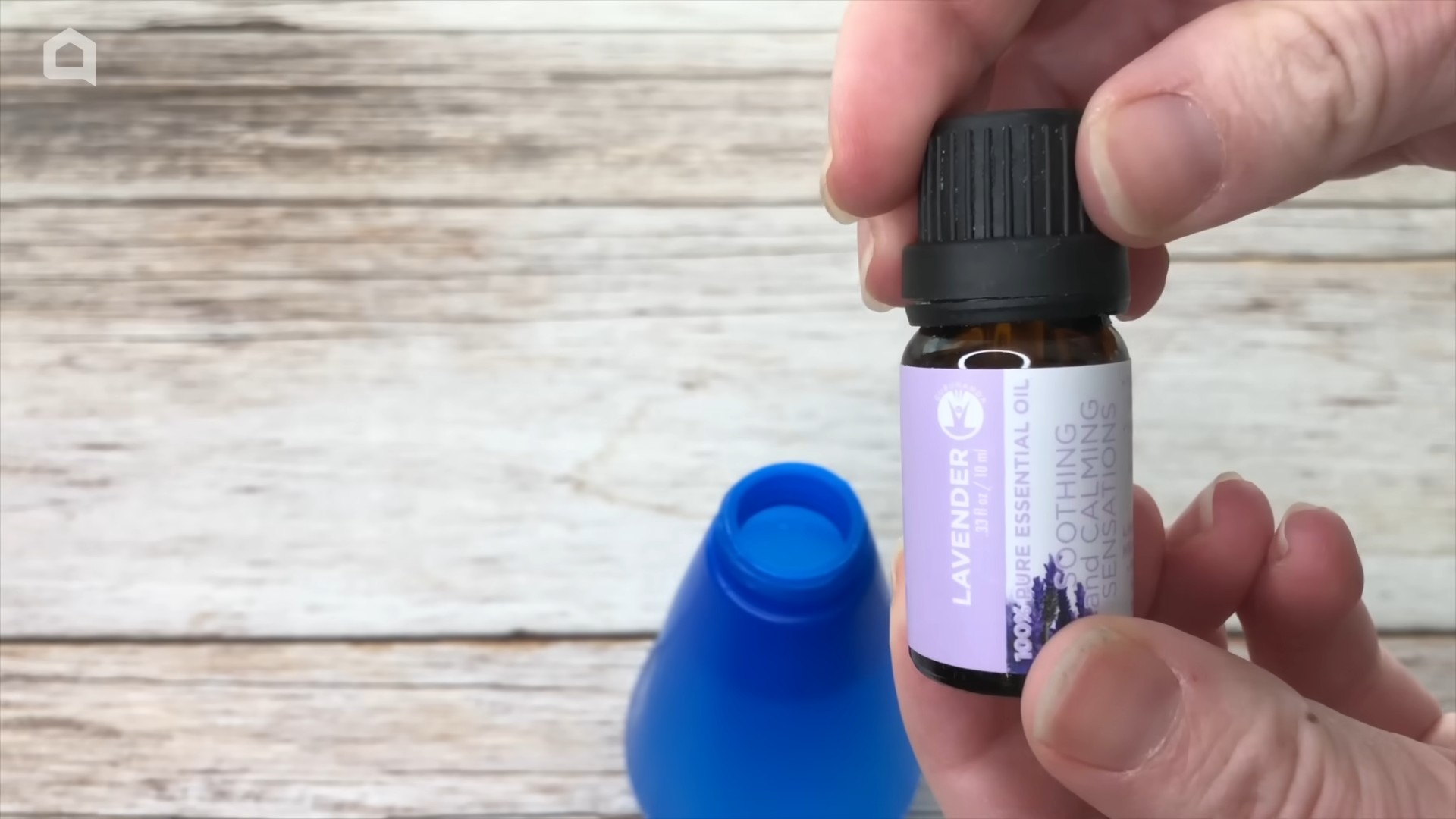
Offbeat Cleaning Tricks That Actually Work (I Swear!)
Okay, let’s be honest, cleaning isn’t exactly anyone’s favorite pastime. But a clean home is a happy home, right? So, I’ve compiled a list of some truly offbeat cleaning tricks that I’ve personally tested and can vouch for. These aren’t your grandma’s cleaning tips (unless your grandma is secretly a cleaning genius with a penchant for denture tablets). Get ready to be amazed!
Cleaning with Denture Tablets: Beyond Just Teeth
Yes, you read that right! Denture tablets aren’t just for cleaning dentures. They’re surprisingly effective for tackling a variety of cleaning tasks around the house. The effervescent action helps break down grime and stains, leaving things sparkling.
Cleaning a Toilet Bowl with Denture Tablets
This is probably the most well-known denture tablet hack, but it’s worth repeating because it’s so easy and effective.
What you’ll need:
* 2-3 denture cleaning tablets
* Toilet brush
Step-by-step instructions:
1. Drop the tablets: Simply drop 2-3 denture cleaning tablets into your toilet bowl.
2. Let them fizz: Allow the tablets to fizz and dissolve completely. This usually takes about 20-30 minutes. The fizzing action helps to loosen stains and grime.
3. Scrub and flush: After the fizzing has subsided, use your toilet brush to scrub the bowl, paying particular attention to any stubborn stains.
4. Flush: Flush the toilet to rinse away the cleaning solution and any loosened debris. Voila! A cleaner, fresher toilet bowl. I usually do this before I go to bed so it can sit overnight.
Cleaning Stained Mugs and Coffee Pots with Denture Tablets
Those stubborn coffee and tea stains in your favorite mugs and coffee pots can be a real pain to remove. But denture tablets to the rescue!
What you’ll need:
* 1-2 denture cleaning tablets
* Hot water
Step-by-step instructions:
1. Fill the mug/pot: Fill the stained mug or coffee pot with hot water.
2. Add the tablets: Drop 1-2 denture cleaning tablets into the water. The number of tablets will depend on the size of the item and the severity of the staining.
3. Let it soak: Allow the solution to soak for at least 30 minutes, or even overnight for heavily stained items. You’ll see the fizzing action working to lift the stains.
4. Rinse thoroughly: After soaking, rinse the mug or coffee pot thoroughly with clean water. You may need to use a sponge or brush to remove any remaining residue.
5. Admire your sparkling clean mug/pot: Say goodbye to those unsightly stains!
Cleaning Vases with Denture Tablets
Vases, especially those with narrow necks, can be tricky to clean. Denture tablets can help you reach those hard-to-reach spots and remove stubborn buildup.
What you’ll need:
* 1-2 denture cleaning tablets
* Warm water
Step-by-step instructions:
1. Fill the vase: Fill the vase with warm water.
2. Add the tablets: Drop 1-2 denture cleaning tablets into the water.
3. Let it soak: Allow the solution to soak for several hours, or even overnight for vases with significant buildup.
4. Rinse thoroughly: Rinse the vase thoroughly with clean water. Use a bottle brush if necessary to scrub away any remaining residue.
5. Dry completely: Allow the vase to dry completely before using it again.
Cleaning with Rice: Shaking Things Up
Rice isn’t just for dinner! Its abrasive texture makes it a surprisingly effective cleaning agent for items with hard-to-reach areas.
Cleaning Coffee Grinders with Rice
Coffee grinders can accumulate oily residue over time, which can affect the flavor of your coffee. Cleaning them with rice is a simple and effective way to remove this residue.
What you’ll need:
* 1/4 cup uncooked rice
Step-by-step instructions:
1. Add rice to the grinder: Pour about 1/4 cup of uncooked rice into the coffee grinder.
2. Grind the rice: Grind the rice for about 30-60 seconds, or until it’s finely ground.
3. Empty the grinder: Empty the ground rice from the grinder. You’ll likely see that the rice has absorbed some of the oily residue.
4. Wipe clean: Use a clean, dry cloth to wipe out any remaining rice dust from the grinder.
5. Repeat if necessary: If the grinder is particularly dirty, you may need to repeat the process with a fresh batch of rice.
Cleaning Bottles and Vases with Narrow Necks Using Rice
Similar to the denture tablet trick for vases, rice can help scrub away grime in those hard-to-reach spots.
What you’ll need:
* 1/4 cup uncooked rice
* Warm water
* Dish soap (optional)
Step-by-step instructions:
1. Add rice, water, and soap: Pour about 1/4 cup of uncooked rice into the bottle or vase. Add warm water and a squirt of dish soap (optional, but helpful for greasy residue).
2. Swirl and shake: Cover the opening of the bottle or vase and swirl and shake vigorously for several minutes. The rice will act as an abrasive, scrubbing away grime.
3. Rinse thoroughly: Rinse the bottle or vase thoroughly with clean water until all traces of rice and soap are gone.
4. Dry completely: Allow the bottle or vase to dry completely before using it again.
Cleaning with Vinegar: The All-Purpose Wonder
Vinegar is a cleaning superstar! Its acidity makes it effective for cutting through grease, removing hard water stains, and disinfecting surfaces. Plus, it’s a natural and eco-friendly alternative to harsh chemical cleaners.
Cleaning Showerheads with Vinegar
Hard water deposits can clog showerheads, reducing water pressure and affecting the spray pattern. Vinegar can dissolve these deposits and restore your showerhead to its former glory.
What you’ll need:
* White vinegar
* Plastic bag
* Rubber band or twist tie
Step-by-step instructions:
1. Fill the bag with vinegar: Fill a plastic bag with enough white vinegar to completely submerge the showerhead.
2. Secure the bag: Place the bag over the showerhead, ensuring that the showerhead is fully immersed in the vinegar. Secure the bag with a rubber band or twist tie.
3. Let it soak: Allow the showerhead to soak in the vinegar for at least 30 minutes, or even overnight for heavily clogged showerheads.
4. Remove the bag and rinse: Remove the bag and rinse the showerhead thoroughly with clean water.
5. Wipe clean: Use a clean cloth to wipe away any remaining residue.
6. Run the shower: Run the shower for a few minutes to flush out any remaining vinegar and debris.
Cleaning Microwaves with Vinegar
Microwaves can get pretty gross with splattered food and grease. Vinegar can help loosen this grime, making it easier to wipe clean.
What you’ll need:
* 1/2 cup white vinegar
* 1/2 cup water
* Microwave-safe bowl
Step-by-step instructions:
1. Combine vinegar and water: Combine 1/2 cup of white vinegar and 1/2 cup of water in a microwave-safe bowl.
2. Microwave the solution: Microwave the solution on high for 5-10 minutes, or until the mixture comes to a boil.
3. Let it sit: Allow the microwave to sit with the door closed for another 5-10 minutes. The steam from the vinegar solution will help to loosen the grime.
4. Wipe clean: Carefully remove the bowl and wipe down the inside of the microwave with a clean cloth or sponge. The grime should wipe away easily.
Cleaning Windows with Vinegar
Vinegar is a fantastic natural window cleaner, leaving them streak-free and sparkling.
What you’ll need:
* Spray bottle
* 1 part white vinegar
* 1 part water
* Microfiber cloth
Step-by-step instructions:
1. Mix the solution: In a spray bottle, mix equal parts white vinegar and water.
2. Spray the windows: Spray the vinegar solution onto the windows.
3. Wipe clean: Wipe the windows clean with a microfiber cloth. For best results, use a clean, dry microfiber cloth for the final wipe.
Cleaning with Lemon: Fresh
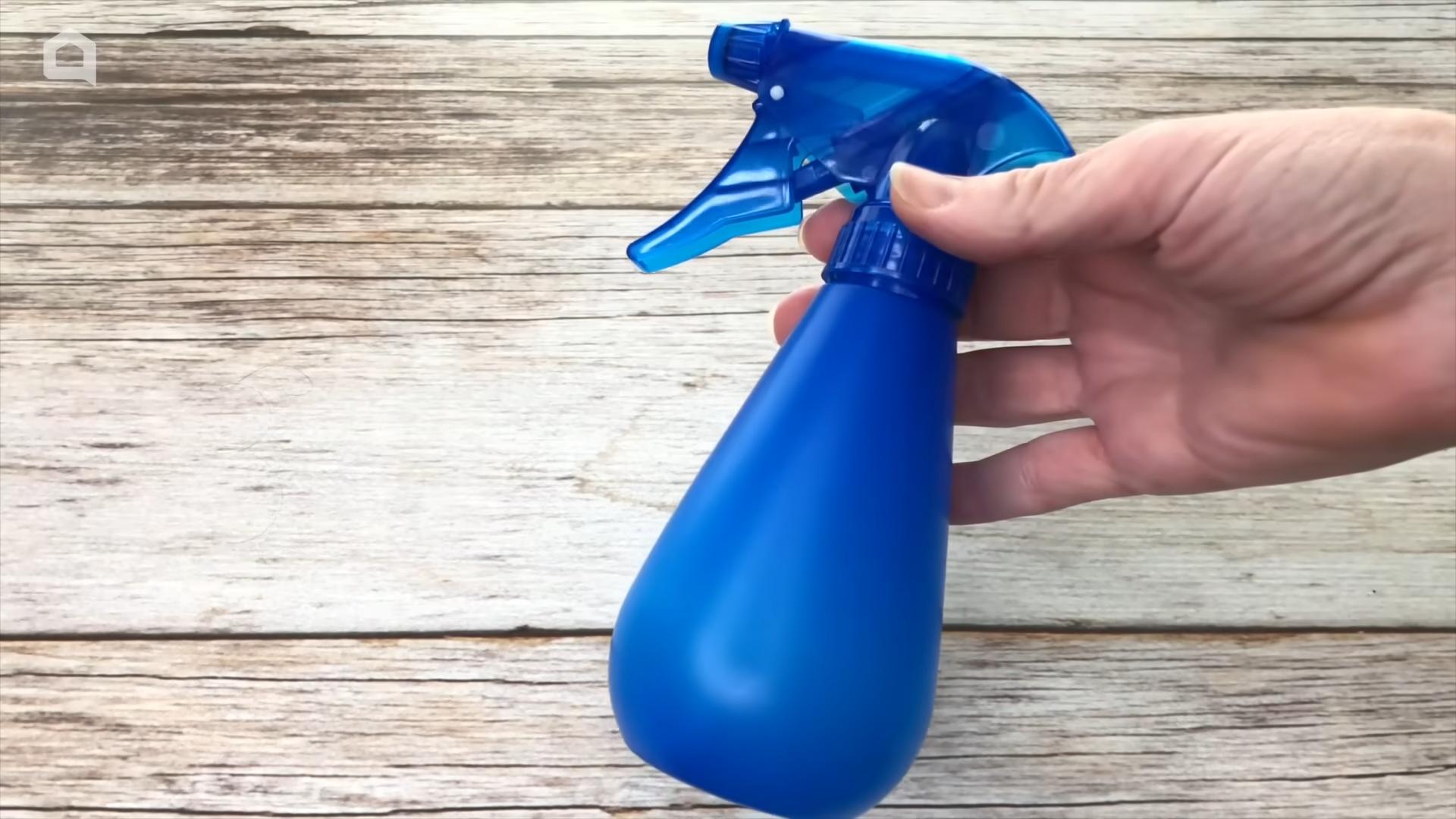
Conclusion
So, there you have it! These offbeat cleaning tricks aren’t just quirky; they’re genuinely effective, budget-friendly, and often use items you already have in your home. Forget harsh chemicals and expensive cleaning solutions – embracing these unconventional methods can transform your cleaning routine into something almost… enjoyable!
The beauty of these tricks lies in their simplicity and adaptability. Whether you’re battling stubborn stains, tackling grimy grout, or simply looking for a more natural way to freshen up your space, there’s an offbeat solution waiting to be discovered.
Why is this a must-try? Because it’s a game-changer. It’s about reclaiming your time, saving money, and achieving sparkling results without sacrificing your health or the environment. Think of the satisfaction of removing a coffee stain with club soda or banishing odors with baking soda – it’s empowering!
Ready to take the plunge? Don’t be afraid to experiment! Start with one trick that resonates with you and see the difference it makes. For example, if you’re dealing with hard water stains in your bathroom, try the lemon juice trick. The citric acid works wonders, and the fresh scent is an added bonus. Or, if you’re looking for a natural way to deodorize your carpets, sprinkle baking soda liberally, let it sit for a few hours (or even overnight), and then vacuum it up. You’ll be amazed at how fresh your carpets smell.
Variations to consider:
* Essential Oil Boost: Add a few drops of your favorite essential oil to your cleaning solutions for an extra boost of fragrance and cleaning power. Lavender, tea tree, and lemon are all excellent choices.
* Vinegar Infusions: Infuse white vinegar with citrus peels or herbs for a more pleasant scent. Simply combine vinegar with your chosen ingredients in a jar, let it sit for a few weeks, and then strain before using.
* DIY Cleaning Paste: Create a versatile cleaning paste by mixing baking soda with a small amount of water or vinegar. This paste is perfect for scrubbing stubborn stains on sinks, stovetops, and ovens.
* Repurpose Old Items: Don’t throw away old toothbrushes, socks, or t-shirts! These items can be repurposed as cleaning tools for hard-to-reach areas or delicate surfaces.
We’re confident that these offbeat cleaning tricks will revolutionize your cleaning routine. But don’t just take our word for it – try them out for yourself! We encourage you to share your experiences, tips, and variations in the comments below. Let’s create a community of cleaning enthusiasts who are passionate about finding innovative and effective ways to keep our homes sparkling clean. What are you waiting for? Grab your baking soda, vinegar, and lemons, and get ready to experience the magic of offbeat cleaning!
Frequently Asked Questions (FAQ)
Are these offbeat cleaning tricks safe for all surfaces?
That’s a great question! While many of these tricks are generally safe and natural, it’s always a good idea to test them on an inconspicuous area first, especially on delicate surfaces like wood, marble, or painted walls. For example, while vinegar is a fantastic cleaner, it can etch marble surfaces. Similarly, lemon juice, due to its acidity, might damage certain types of wood finishes. Always err on the side of caution and test before applying any cleaning solution to a large area. If you’re unsure, consult the manufacturer’s instructions for the surface you’re cleaning.
How often should I use these offbeat cleaning methods?
The frequency depends on the specific trick and the area you’re cleaning. For general cleaning, like wiping down countertops with vinegar and water, you can do it daily or as needed. For more intensive cleaning, like removing stubborn stains with baking soda paste, you might only need to do it once a week or even less frequently. Pay attention to how your surfaces respond to the cleaning methods and adjust the frequency accordingly. Over-cleaning can sometimes be just as damaging as not cleaning enough.
Can I mix different offbeat cleaning ingredients together?
This is a crucial point! Some cleaning ingredients, when mixed, can create dangerous fumes or reactions. Never mix bleach with vinegar or ammonia. This combination produces toxic chlorine gas, which can be harmful or even fatal. It’s generally best to avoid mixing different cleaning agents unless you’re absolutely sure they’re safe to combine. When in doubt, use them separately.
Are these offbeat cleaning tricks effective for deep cleaning?
Absolutely! While some of these tricks are great for everyday maintenance, many are also surprisingly effective for deep cleaning. For example, using baking soda and vinegar to unclog drains is a powerful and natural alternative to harsh chemical drain cleaners. Similarly, using steam to clean grout can loosen dirt and grime that’s been embedded for years. The key is to use the right trick for the right task and to be patient. Deep cleaning often requires a bit more elbow grease and time, but the results are well worth it.
What are some alternatives if I don’t have the recommended ingredients?
Sometimes you might not have all the ingredients on hand. Don’t worry, there are often alternatives! For example, if you don’t have white vinegar, you can often substitute apple cider vinegar, although it might have a slightly different scent. If you don’t have baking soda, you can sometimes use washing soda, but be sure to wear gloves as it’s more alkaline. If you’re looking for a natural disinfectant and don’t have tea tree oil, you can use eucalyptus oil or lemon essential oil. A quick online search can often provide you with suitable substitutions.
How do I store homemade cleaning solutions?
Proper storage is essential for maintaining the effectiveness and safety of your homemade cleaning solutions. Store them in clean, airtight containers, preferably glass or food-grade plastic. Label each container clearly with the contents and the date it was made. Keep them out of reach of children and pets. Store them in a cool, dark place to prevent degradation. Some solutions, like those containing essential oils, may need to be stored in dark-colored bottles to protect them from light.
Are these offbeat cleaning tricks environmentally friendly?
In most cases, yes! One of the biggest advantages of these tricks is that they often use natural, biodegradable ingredients that are less harmful to the environment than conventional cleaning products. However, it’s still important to be mindful of the amount of water you use and to dispose of any waste properly. For example, when cleaning with vinegar, avoid pouring large amounts down the drain, as it can disrupt the pH balance of your septic system.
What if the offbeat cleaning trick doesn’t work?
Sometimes, despite your best efforts, a cleaning trick might not work as expected. Don’t get discouraged! It could be that the stain or grime is particularly stubborn, or that you need to adjust the technique. Try repeating the process, using a slightly stronger concentration of the cleaning solution, or letting it sit for a longer period. If that doesn’t work, try a different offbeat cleaning trick or consult a professional cleaning service. Remember, every situation is unique, and what works for one person might not work for another.

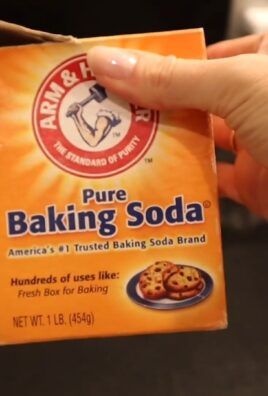
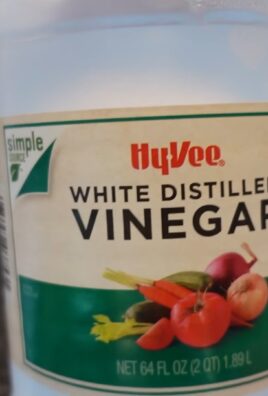
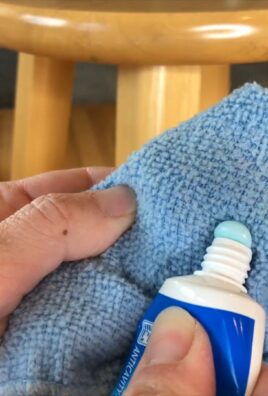
Leave a Comment